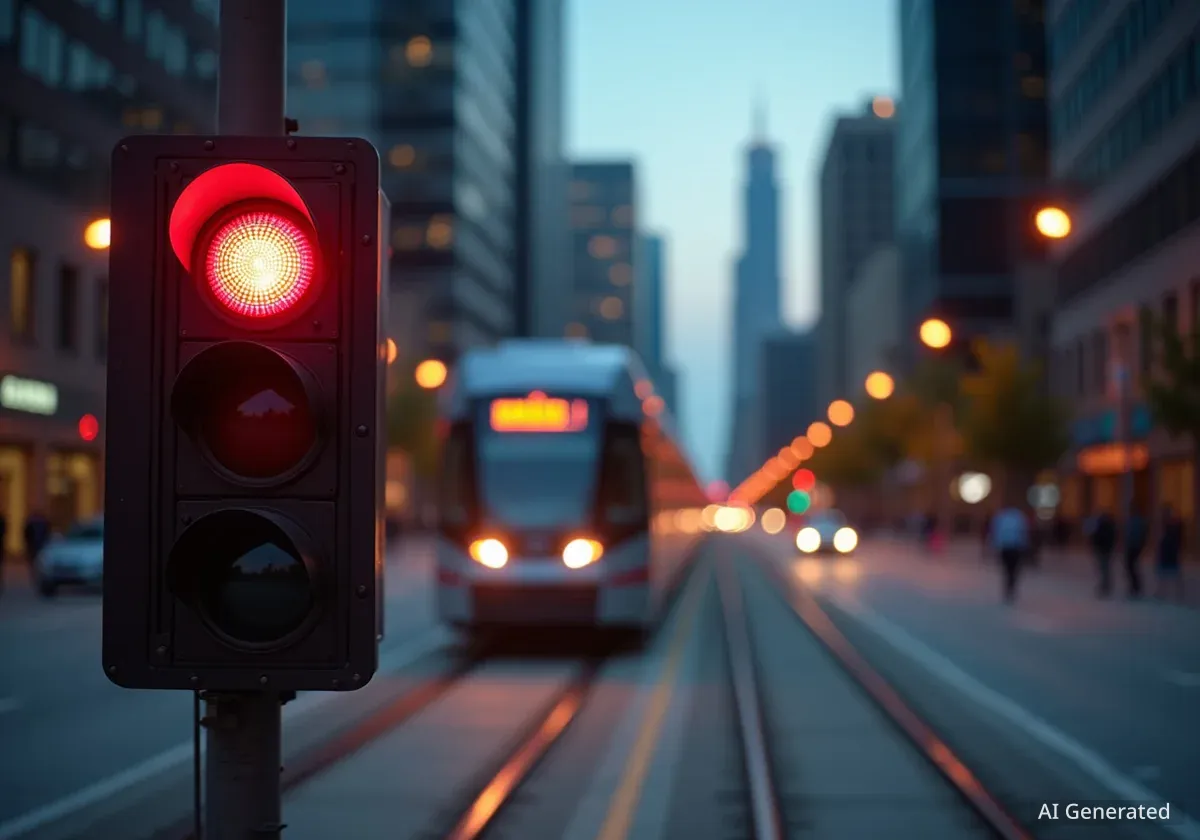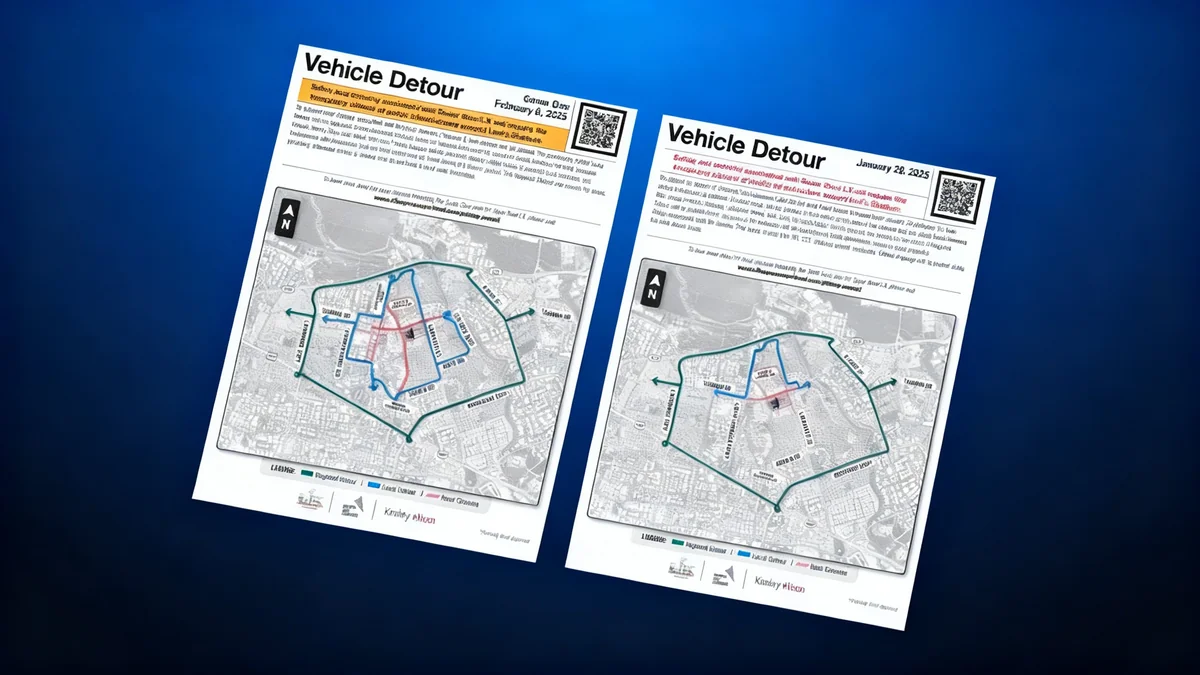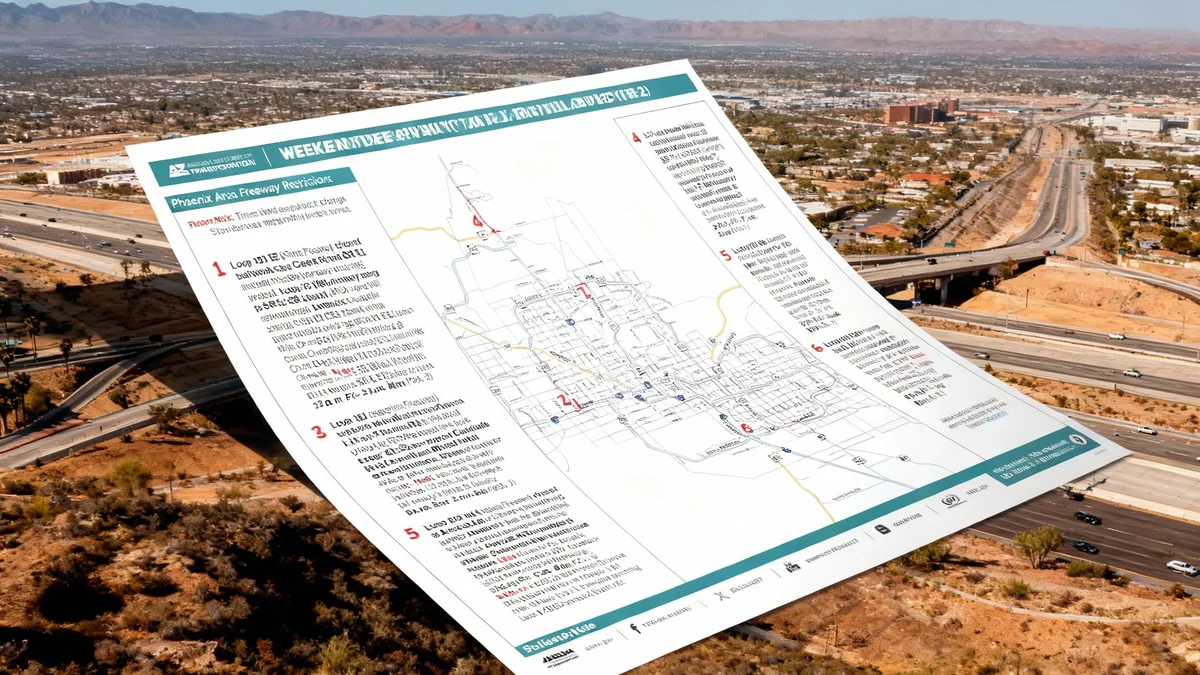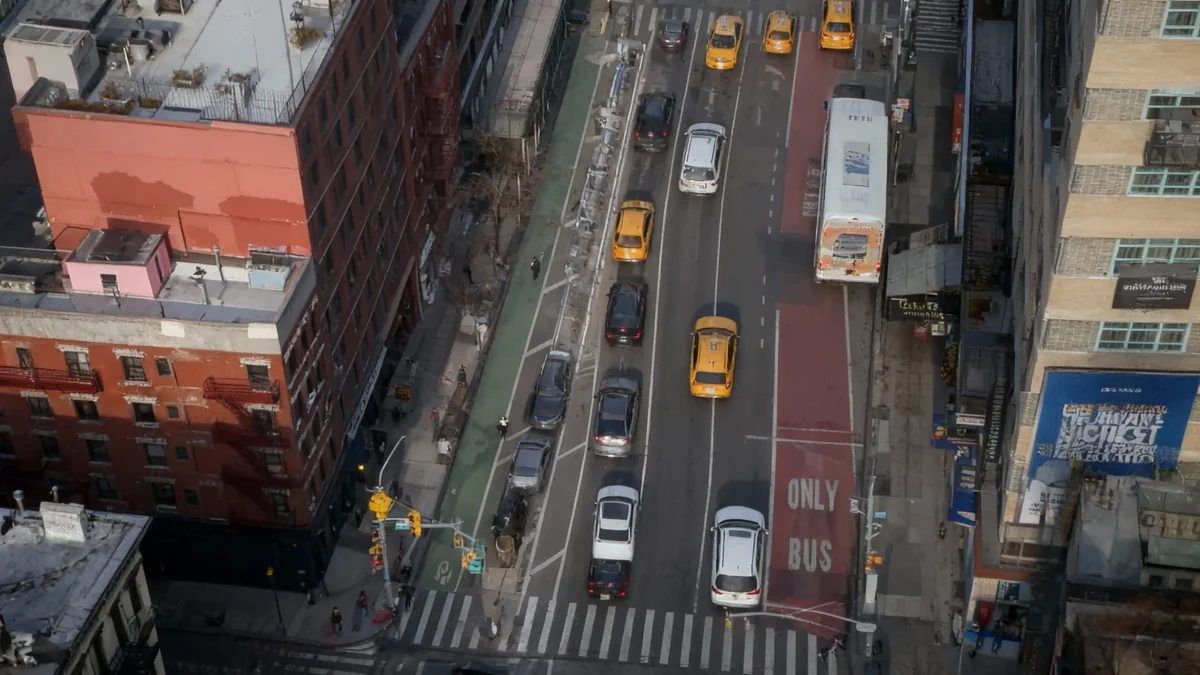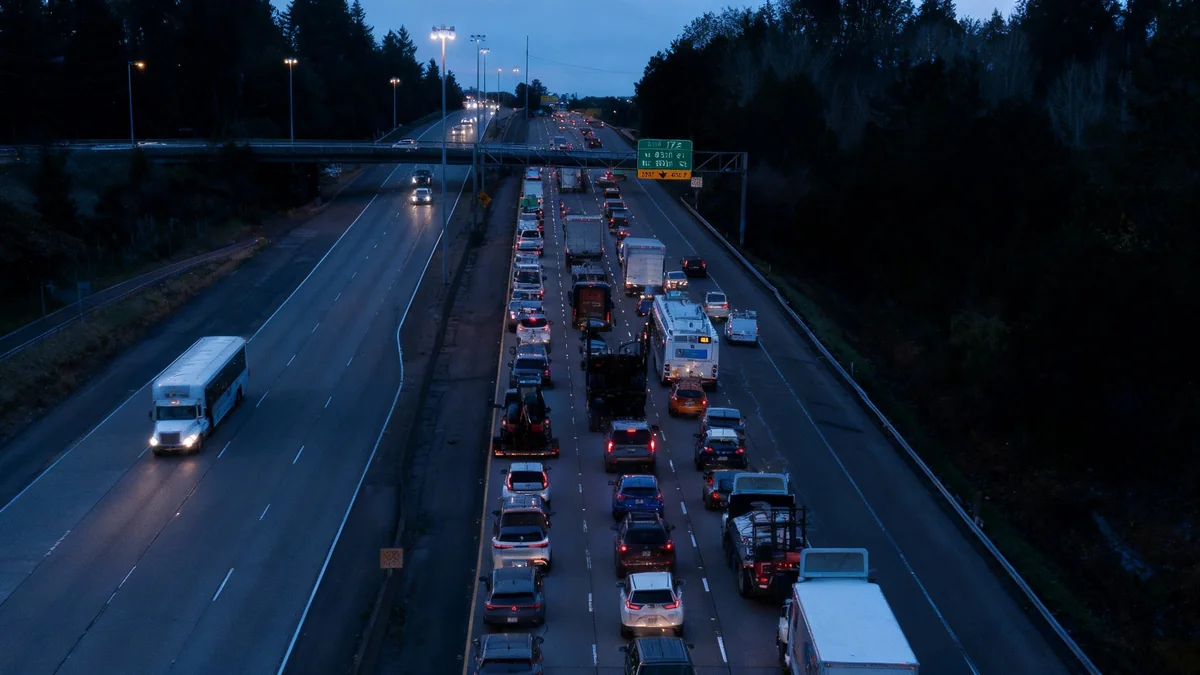Houston's METRO light rail riders are experiencing significant delays following recent changes to traffic signal timing in downtown and midtown areas. These adjustments, affecting approximately 400 traffic lights, were implemented by the city in preparation for the upcoming World Cup. Passengers on the Red Line report longer wait times, impacting daily commutes.
Key Takeaways
- Houston's METRO Red Line riders face delays due to new traffic light timing.
- About 400 traffic lights in downtown and midtown were retimed for the World Cup.
- Commute times have increased by up to 15 minutes for some light rail users.
- METRO acknowledges challenges for rail system but notes improvements for other traffic.
- Public opinion is divided on whether trains should have priority at intersections.
New Traffic Light System Causes Commute Disruptions
For years, METRO light rail trains typically triggered green lights as they approached intersections. This system allowed for smoother and faster transit through busy urban areas. However, this automatic priority has changed. The city's initiative to retime traffic signals aims to optimize traffic flow more broadly across downtown and midtown.
Annette Frenk, a regular Red Line passenger, described her experience. She stated that her commute from east downtown to the Medical Center now takes an additional 15 minutes. "It's slow. You may be stopped for like three, five, eight minutes," Frenk explained, highlighting the frustration of extended wait times.
METRO Red Line Ridership
Data from METRO indicates that the Red Line served an average of 32,000 riders last month. This number reflects the daily reliance many Houston residents place on the light rail system for their transportation needs.
Impact on Public Transit Ridership and City Goals
The altered traffic light sequencing has raised concerns about its potential effect on public transit ridership. Peter Eccles, representing the mass transit advocacy group LINK Houston, voiced these concerns. He believes the changes could deter people from using public transportation.
"This is gonna make it a lot more difficult for people to choose to ride public transit and for the light rail to increase its ridership growth," Peter Eccles said.
Increasing public transit use is often a goal for urban centers. Delays could work against efforts to encourage more residents to opt for trains over personal vehicles, especially as the city prepares for a major international event like the World Cup.
METRO's Response to System Changes
When questioned about the light retiming project, METRO issued a statement acknowledging the adjustments. The agency confirmed that changes had been made to the rail system's operation. They also highlighted positive outcomes for other road users.
"These efforts have already produced measurable improvements for buses, commuters, and pedestrians," METRO wrote in its statement. "At the same time, they have introduced challenges for our rail system, which we are actively addressing."
METRO did not directly address specific questions regarding the trains losing their automatic green light priority. This suggests the agency is evaluating the full impact of the changes while working to mitigate negative effects on rail service.
Divided Opinions Among Commuters
While some riders are frustrated by the delays, others believe the changes are fair. Steve Cummings, another light rail passenger, offered a different perspective. He argued that vehicle drivers also need their turn at intersections.
"I do believe that people that do have their vehicles and are going through Fannin or Main definitely need their time to go through, and it can be kind of frustrating when a train is just like cutting you off," Steve Cummings stated.
This view highlights the ongoing challenge of balancing the needs of various modes of transportation in a busy city. Prioritizing one form of transport can often lead to delays for others.
World Cup Preparations
Houston is one of the host cities for the upcoming FIFA World Cup. The re-timing of traffic lights is part of broader infrastructure adjustments designed to manage increased traffic and pedestrian flow during the international event. These preparations aim to ensure efficient movement for visitors and residents alike.
Safety Concerns and Calls for Rail Priority
Beyond convenience, some riders have expressed safety concerns. Cleo Mitchell noted that the previous automatic light changes for trains might have been safer. "I just really don't think that it's safe 'cause a lot of people just not paying attention and those lights just automatically change," Mitchell commented.
This suggests a potential risk if drivers are not accustomed to trains no longer having immediate right-of-way. There were also reports of some trains running red lights even when the system was previously set to change lights automatically.
Despite the city's broader traffic management goals, some still advocate for trains to maintain priority. Annette Frenk, for example, believes that mass transit should always have precedence. "There's a lot of people who ride the Red Line, and I think those people should have priority. I think mass transit should have a priority," she reiterated.
The debate over traffic light priority underscores the complex relationship between urban planning, public transportation efficiency, and the daily lives of residents. As Houston continues its preparations for the World Cup, METRO and city officials will need to address these challenges to ensure a balanced and effective transportation network.

